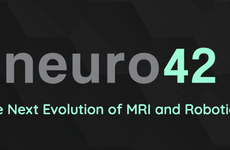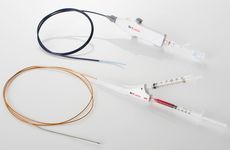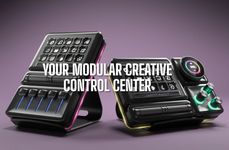
ReShape Lifeciences is Enhancing Its DBSN™ System
References: reshapelifesciences & globenewswire
ReShape Lifesciences has secured a $241,000 supplementary grant from the NIH to advance the development of its Diabetes Bloc-Stim Neuromodulation™ (DBSN™) system, a device aimed at managing Type 2 diabetes. The grant will support further preclinical trials using the DBSN™ device, including the development of next-generation electrodes to improve treatment efficacy and reduce power consumption.
ReShape Lifesciences' DBSN™ system combines vagus nerve block and stimulation to regulate blood glucose levels. The enhancement initiative reflects the company's ongoing commitment to improving personalized diabetes care through bioelectronic technology. The system is designed to reduce the need for medication by leveraging electrical neuromodulation to regulate insulin production and glucose release, potentially addressing challenges like medication non-compliance and treatment costs.
For consumers, particularly those affected by Type 2 diabetes, this technology offers hope for a minimally invasive treatment alternative with the potential to reduce reliance on drugs and improve glycemic control.
ReShape Lifesciences' DBSN™ system combines vagus nerve block and stimulation to regulate blood glucose levels. The enhancement initiative reflects the company's ongoing commitment to improving personalized diabetes care through bioelectronic technology. The system is designed to reduce the need for medication by leveraging electrical neuromodulation to regulate insulin production and glucose release, potentially addressing challenges like medication non-compliance and treatment costs.
For consumers, particularly those affected by Type 2 diabetes, this technology offers hope for a minimally invasive treatment alternative with the potential to reduce reliance on drugs and improve glycemic control.
Trend Themes
1. Bioelectronic-medical Devices - Bioelectronic medical devices are merging electrical neuromodulation with traditional treatments, offering innovative ways to manage chronic conditions like diabetes.
2. Personalized-diabetes Care - Advancements in personalized diabetes care are increasingly focusing on customized treatment plans using bioelectronic technology to enhance patient outcomes and reduce medication dependence.
3. Next-generation-immunoelectronics - The development of next-generation immunoelectronics, including improved electrodes for neuromodulation devices, aims to increase treatment efficacy while minimizing power consumption and patient discomfort.
Industry Implications
1. Medical-technology - The medical technology industry is rapidly evolving with the introduction of advanced bioelectronic devices that aim to revolutionize the management of chronic diseases such as Type 2 diabetes.
2. Health-care - In the health care industry, there's a growing focus on integrating bioelectronic solutions into existing treatment paradigms to offer more effective and less invasive options for patients.
3. Biomedical-engineering - Biomedical engineering is pushing the boundaries of innovation by developing sophisticated neuromodulation systems that can precisely control physiological processes for improved disease management.
7.1
Score
Popularity
Activity
Freshness























